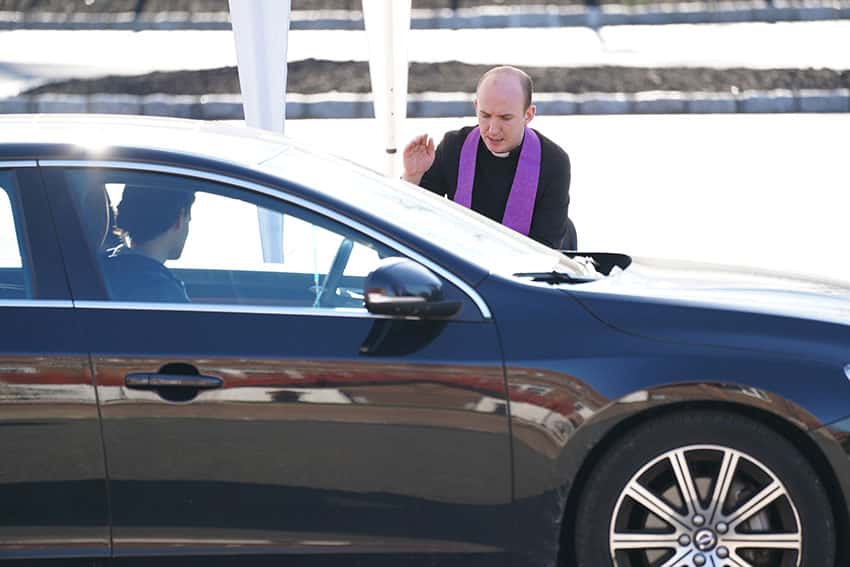
For what it’s worth, I think Premier could use time better
If I were an advisor to Queensland Premier Annastacia Palaszczuk, I would suggest she use the next six months to lead her state through the health, economic and social recovery needed following the COVID-19 crisis, hoping that strong and positive leadership will distract from the disastrous resignation of her deputy amidst allegations of corruption.
I would also warn her against trying to push ahead with radical social changes, some of which bear Jacki Trad’s fingerprints, in the handful of sitting days that will occur when parliament finally resumes sitting on Tuesday.
The Premier has indicated parliament would sit for three days, which could give it more time than is needed to pass emergency COVID-19 laws, and move onto other laws on the agenda.
The Brisbane Times helpfully “compiled a list of proposed laws that have been put on the backburner during the crisis” and published it on Monday.
“I would also warn her against trying to push ahead with radical social changes”
After increasing the fines for those who illegally park in spaces reserved for those with disabilities, the Fairfax publication suggested the next three items on the list should be the stripping of legal protections for the seal of confession, the banning of so-called ‘conversion’ therapy and the legalisation of euthanasia and assisted suicide. Let’s look at these briefly.
Churches across the country have been closed now for a couple of months. For most Catholics living in Queensland, the celebration of the Sacrament of Reconciliation was suspended from 23 March, so the majority of Catholics in that state and across the country haven’t been to confession in nearly two months.
Spotlight on confession, euthanasia and ‘conversion therapy’
As restrictions begin to lift and as Catholics seek to return to confession and priests are asked to be generous in making the sacrament available, passing a law that attacks the practice of confession and the freedom of priests and penitents would be a public relations nightmare.
I would suggest to Premier Palaszczuk that she might look first for a way to ensure that the faithful have greater opportunities to return to the practice of their faith before finding another way to dissuade them from doing so.
Then we move on to the ban on so-called conversion therapy. This ban is marketed to stop the use of practices such as electro-shock therapy to change a person’s sexual orientation, but goes much further, prohibiting any “treatment or other practice that attempts to change or suppress a person’s sexual orientation or gender identity.”

These bans, which Victoria and the ACT have also moved to put in place, are increasingly controversial in light of the Federal Health Minister’s refusal to authorise a formal parliamentary inquiry into what medical practitioners have called “the rapid rise of childhood gender dysphoria in Australia and the lack of scientific basis for current medical treatment.”
With the Gender Service at Victoria’s Royal Children’s Hospital going from seeing one case a month just a decade ago to now seeing one new child patient each day, the “rapid rise” to which these doctors refer would make a COVID-19 graph blush.
I would suggest to Premier Palaszczuk that while she attempts to bring her state through one pandemic, she should not use valuable parliamentary time to open the doors for another, more silent, one to occur.
“…while she attempts to bring her state through one pandemic, she should not use valuable parliamentary time to open the doors for another, more silent, one to occur.”
And then we have the push for the legalisation of euthanasia and assisted suicide.
While you don’t have to be an expert in political strategy to realise that it is probably not good politics to push through divisive legislation that sanctions the killing of vulnerable people while the rest of the world is doing their utmost to save those most at risk, there are particular reasons why it is imprudent in the current climate.
A week before a parliamentary committee handed down its report recommending the legalisation of euthanasia and assisted suicide, the same committee handed down another report, outlining the devastating state of aged care and palliative care in Queensland.
The Committee heard evidence that almost 60 per cent of people who required specialist palliative care services at the end of life did not receive specialist palliative care, and that some communities have no specialist palliative care services at all.
This is in addition to other evidence the Committee received about the drastic underfunding and understaffing in residential aged care.
I would suggest to Premier Palaszczuk that as she approaches an election, she might look to seeing what the state government can do about improving the condition of aged care and access to palliative care before providing the “choice” of legalised euthanasia to the state’s most vulnerable.
But then again, what do I know?
Related articles:
Melbourne council push against seal of confession
Robert Assaf: Care neutralises euthanasia
No Premier Andrews, you’re very wrong on gender therapy
